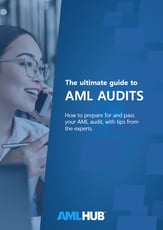
Finding your AML auditor is one of the first steps to take when it comes to preparing for your three-yearly AML audit. But to make sure you're as ready as you can be,...
If the time for your AML audit is rapidly approaching, the most important question at the forefront of your mind should be: who will be my AML auditor?
Depending on the auditor you pick, they can deliver great value and insight into the running of your AML/CFT programme. But if you choose the wrong auditor, you could end up with a hurried tick-box exercise that results in your business actually being non-compliant.
You might already have an AML auditor that you use. Maybe you're on the hunt for a new auditor. Or perhaps this is your first audit ever. Whichever stage you're at, you will benefit from assessing your auditor to make sure you're getting the most value out of the AML audit exercise.
To make your AML audit truly valuable, you'll want to engage an AML auditor who understands AML/CFT principles and your sector. In particular, you will want an auditor with a solid audit methodology, as auditing is a skill set in its own right. This is important because processes, systems, and risks differ between sectors, and if the auditor doesn't have a good grasp on the context in which your business operates, they'll make recommendations that aren't applicable or customised to your circumstances.
In addition to having a good ground knowledge of your sector, you will benefit most from an AML auditor that explains the process as they go and discusses the findings with you afterwards.
You should look carefully at your AML auditor's qualifications across four aspects:
Unfortunately, it isn't hard to find a low-cost auditor that will give you a quick pass, but that doesn't mean you are compliant in practice. If an auditor has failed to identify systemic issues within your Compliance Programme and its implementation (perhaps because they have done the audit too quickly and/or not addressed your full suite of obligations), then as a Reporting Entity you may be found non-compliant by the Supervisors despite a positive independent audit.
So, it is important to pick your auditor carefully; the lowest cost option is not the best criteria.
|
|
 |

Finding your AML auditor is one of the first steps to take when it comes to preparing for your three-yearly AML audit. But to make sure you're as ready as you can be,...

Record-keeping is a vital part of your AML/CFT programme, as it is the source of truth for all your activities. Without good records you cannot prove to external...